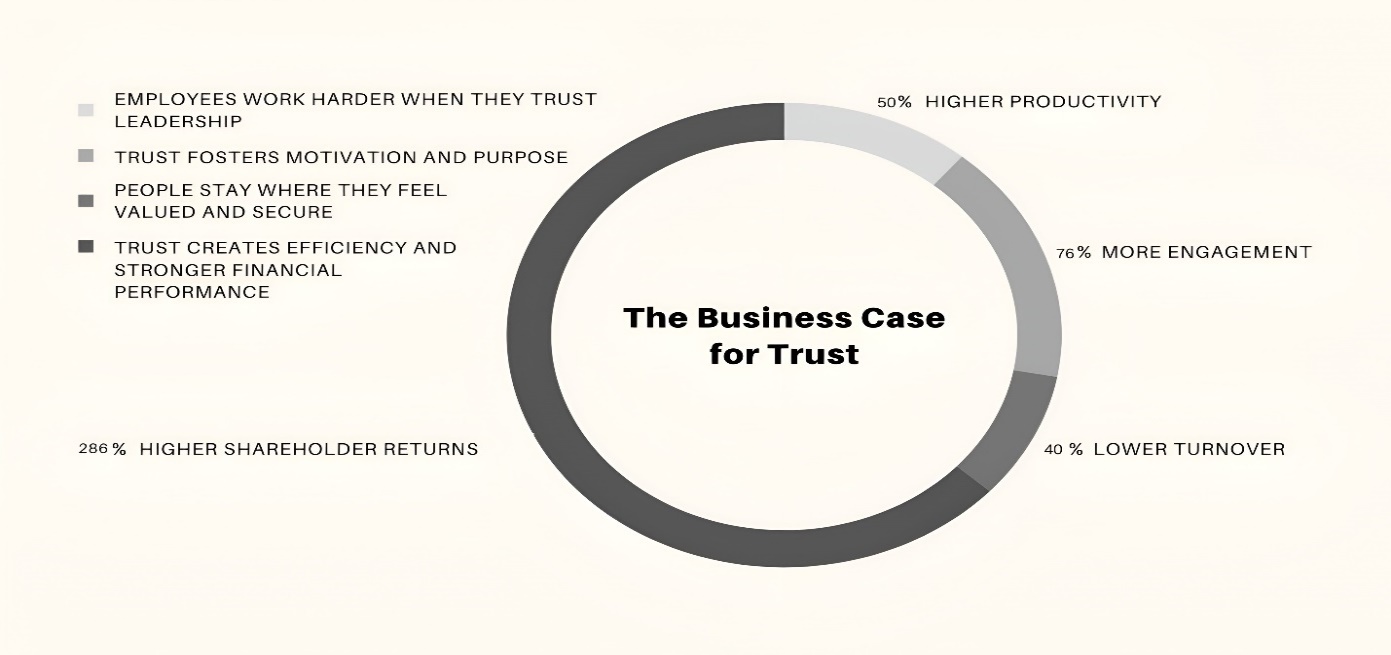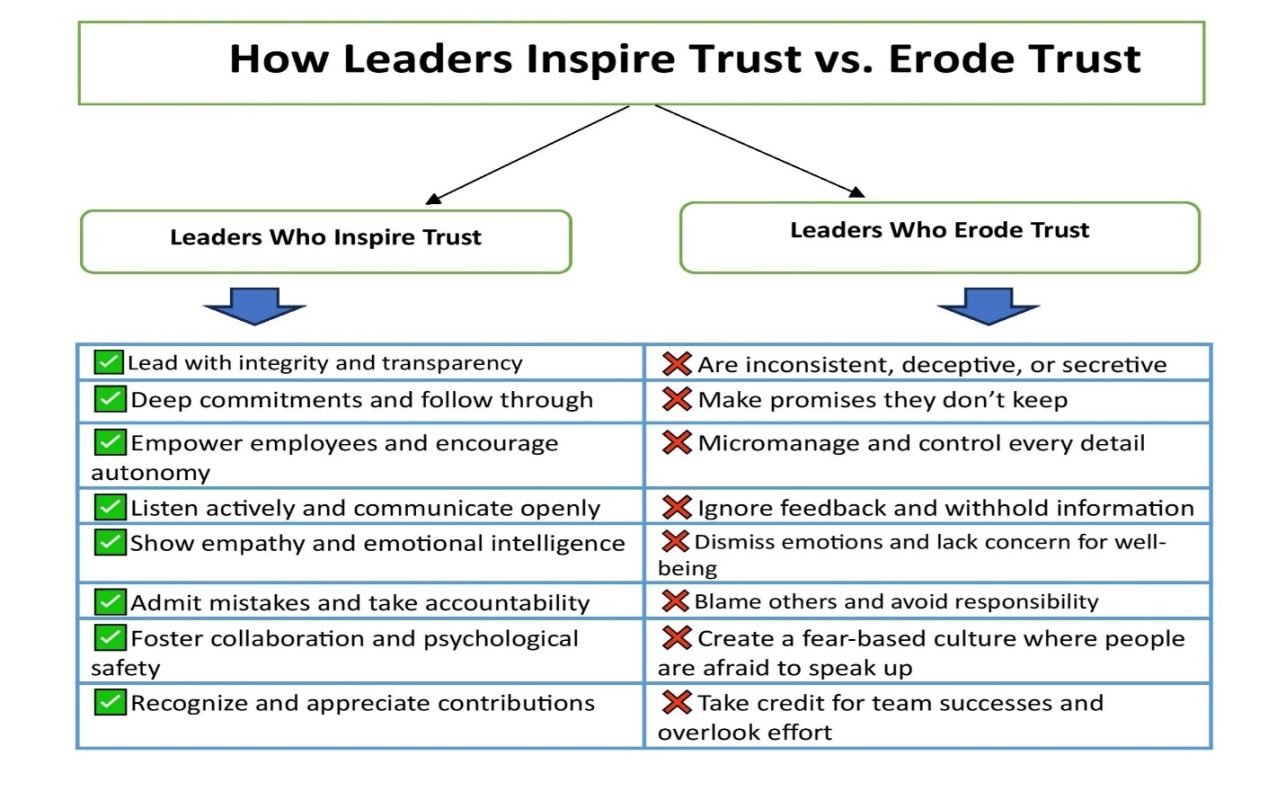
Do You Build Trust or Erode Trust with Your Leadership Style?
Trust is the foundation of every successful business and relationship. It drives high performance, strengthens collaboration, and fuels innovation. Without trust, leaders struggle to engage their teams, and businesses fail to reach their full potential.
Stephen M.R. Covey, in his book The Speed of Trust, defines trust as “confidence born of character and competence.” In other words, trust is built on integrity, reliability, and the ability to deliver results.
As a business coach specializing in leadership, human performance, and relationships, I’ve observed that trust is often the defining factor between great leaders and ineffective ones. Leaders who inspire trust build organizations that thrive, while those who lack trust create environments of uncertainty and disengagement.
The Business Case for Trust
Trust is not just an ethical consideration—it has measurable business outcomes. Companies with high-trust cultures experience:
These statistics reinforce the principle that “trust is the one thing that changes everything.”

How Leaders Inspire Trust vs. Erode Trust
Below is a comparison of leadership behaviors that inspire trust versus those that erode it:

7 Ways to Building a Culture of Trust
Trust is built through intentional actions, not just words. Here are a few strategies leaders can implement to create a high-trust environment:
Model the Behavior You Expect – Trust starts at the top. Leaders must be role models of integrity, consistency, and accountability.
Prioritize Transparent Communication – Employees need to feel informed and valued. Leaders should openly share company goals, challenges, and decisions.
Invest in Relationships – Take time to know your team personally. Show genuine interest in their aspirations and challenges.
Deliver on Commitments – Nothing erodes trust faster than broken promises. Leaders should only commit to what they can realistically accomplish.
Encourage Open Dialogue – Create an environment where employees feel safe expressing concerns, sharing ideas, and providing feedback.
Demonstrate Competence – While character is essential, competence is equally critical. Leaders must continuously develop skills and make informed decisions.
Embrace Accountability – When leaders admit mistakes and take responsibility, they reinforce a culture of trust and learning.
Final Thoughts
Trust is not a “nice-to-have” leadership quality—it is the bedrock of success. It is the glue that holds businesses, relationships, and teams together. Stephen M.R. Covey reinforces that trust accelerates performance, reduces costs, and fosters loyalty.
Leaders who prioritize trust unlock the full potential of their teams, creating cultures of innovation, engagement, and high performance. Those who neglect it risk inefficiency, disengagement, and ultimately, failure.
So, ask yourself: Are you leading in a way that inspires trust? If not, now is the time to change. Your team—and your business—depend on it.
Dr.Patty Ann
#TrustInLeadership #HighPerformanceTeams #LeadByExample #EffectiveLeadership #HumanPerformance
